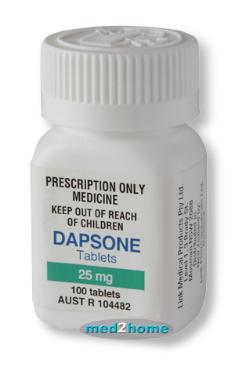
Results from the first placebo-controlled clinical trial of dapsone suggest that the well-known agent is beneficial for chronic idiopathic urticaria.
"This is much cheaper than a lot of the other drugs because it's been around since the 1940s and it's generic," Andrew Cooke, MD, from the University of Texas Southwestern Medical Center in Dallas, told Medscape Medical News.
The results, presented here at the American Academy of Allergy, Asthma & Immunology (AAAAI) 2013 Annual Meeting, show that the antibiotic originally used for leprosy relieves the symptoms of urticaria that is refractory to high-dose antihistamines.
"A lot of allergists have used dapsone — this isn't the first description of it — but this was a double-blind placebo-controlled study, which makes it a very robust study," Stuart Abramson, MD, head of the AAAAI scientific program committee, who is from Shannon Medical Center in San Angelo, Texas, toldMedscape Medical News.
The study, presented as a featured poster at the meeting, involved 22 patients who had chronic idiopathic refractory urticaria with a median duration of 1.0 and 1.3 years. Patients with baseline chronic kidney disease or baseline liver disease were excluded from the study.
Investigators randomized patients to either dapsone 100 mg daily or placebo for 6 weeks, followed by a 2-week washout period and then a crossover to the other treatment.
"Because the patients who were on the placebo phase last continued to see the benefits of dapsone from the first phase, we actually had to analyze the trial by the first phase only," explained Dr. Cooke, who was brought into the study specifically for this purpose.
Dr. Cooke worked with the study's statistician to convert the trial from a crossover to a parallel design.
Antibiotic for Leprosy
The researchers found that treatment with dapsone resulted in a statistically significant improvement over placebo and over baseline, "which was surprising because that's not how the trial was originally designed. However, it points to the efficacy of this drug for urticaria," Dr. Cooke said.
After 6 weeks, there was no improvement from baseline in patients in the placebo group, whereas patients in the dapsone group showed a mean improvement of 2.3 points on a visual analog scale (P = .01), 4.8 points on a weekly itch scale (P = .001), and 3.5 points on a weekly hive scale (P = .02).
About a third of patients in the dapsone group had a reduction of at least 50% in weekly hive score, and 16% experienced complete resolution. In addition, 41% had a significant reduction in weekly itch score and 17% had complete resolution.
In terms of adverse effects, both hematocrit and hemoglobin dropped significantly (P < .001) in the dapsone group, but not in the placebo group.
Table. Mean Change in Hemoglobin and Hematocrit With Dapsone
| Outcome | Baseline | Week 6 |
| Hemoglobin (mg/dL) | 13.6 | 11.8 |
| Hematocrit (%) | 40.5 | 34.8 |
"We saw about a 2-point drop in hemoglobin and a 6-point drop in hematocrit," Dr. Cooke reported. "This started at about 3 weeks, and went on until 5 weeks after the drug was stopped."
In addition, "we had a few patients who had vaginal candidiasis, 1 had mild neuropathy, and 2 had some mild nausea," he said. "You need to check glucose-6-phosphate dehydrogenase deficiency status, it can't be given to pregnant patients, and if they have a baseline anemia, I wouldn't use it," Dr. Cooke added.
Dr. Cooke explained that dapsone is used for pneumocystis pneumonia prophylaxis in patients who have HIV and very low CD4 counts, and "they tend to take it daily and probably for a long duration."
However, he emphasized that larger studies are needed to confirm these findings in chronic idiopathic urticaria and to investigate the optimal dose and duration — especially because the benefits of the drug continued for some time after it was stopped.
"It's an interesting drug and it has been something in our armamentarium," Dr. Abramson said. "I've had some patients that I've used it on for chronic urticaria and it's been very successful, although I start at a lower dose — 50 mg. The nice thing is that here we have a double-blind placebo-controlled study," he added.
This trial was funded by the National Institutes of Health. The investigators and Dr. Abramson have disclosed no relevant financial relationships.
American Academy of Allergy, Asthma & Immunology (AAAAI) 2013 Annual Meeting: Abstract 508. Presented February 24, 2013.





 留言列表
留言列表
 線上藥物查詢
線上藥物查詢 